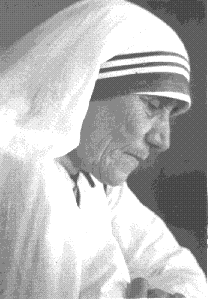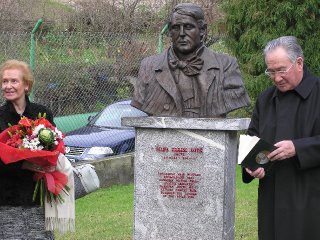[Zilegi bekit Xabier Kintanaren artikulu bat hona aldatzea. Oso kontu interesgarri bat jorratzen du euskal politika, euskaltzaletasuna, koherentzia eta alderdi batzuen barruko "jokaldi" zikinak bezalako gaiak ukituz. Hausnartzeko modukoa eta... nota hartzeko modukoa]
Xabier Kintana
Euskaltzaina
Hitzaren jatorriari kasu eginez gero behintzat, politika, berez, hiriaren, hots, Estatuaren zaintze eta gobernuaz arduratzea litzateke, grekoen arabera. Eta, hortik abiatuta, noski, politikariek, herritarren ongia lortzeko kargua lukete. Beraz, espero izatekoa litzateke politikariaren bizitza publikoan, berak buruan eta bihotzean omen daraman helburu horren ispilua agertzea, hots, pertsona gai eta zentzuduna izatea, arazoak konpontzeko trebea, harremanetarako egoki eta solaskide bikaina, gainerako hiritarren kezkak bereganatzen eta bere asmoak besteei argiro adierazten lekikeena.
Baina maiz nahia bat eta errealitatea beste bat izaten dira politika munduan. Agindurikoa hau eta egindakoa, aldiz, hura: horixe izaten da politikari askoren ohiko jokabidea, itxura eta engainuen arteko partidan. Ez da harritzekoa eskuarki gezurretan dabilenagatik politika asko dakiela esatea. Ez dira gutxi, halaber, idealismoagatik ez baina interes pertsonalengatik gauza publikoan sarturikoak, sakelak isileko eskupekoekin betetzeko beti gertu, etxegintza arloan han eta hemen aspaldion gertatzen ari diren eskandalu sonatuak lekuko. Baina honelako gauzak, gutxi edo asko, mundu guztian jazotzen diren arren, badira, ordea, herrialde zibilizatuetan behintzat, gero eta gehiago errotzen ari diren portaera eredugarriak, nolabait politikari on eta zintzoaren eginkizunak dei genitzakeenak.
Jendaurreko aribide horretan, noski, baldintzetako bat hiztun landu eta hizlari trebea izatea dugu, herritarrak konbentzitu, bereganatu edota, nahiago baduzu, engainatzeko, nahitaezkoa. Ez gaude horretan baina, euskaldunok ongi homologatuak. Gure politikariak ez dira izaten, zoritxarrez, euskaraz behar bezain jantziak, ez eta euskal kulturaren jabeak ere. Euskal liburu bat behin ere ireki ez duten euskaldun askotxo ditugu politikari, txikitan etxean ikasiriko euskaratxoaz ozta-ozta jarduteko gai. Ausartegia ni! Nola pasatu ote zait burutik gure politikariei euskara jasoa eta euskal kulturan maila onik eskatzea, horien alderdiak, abertzaleak izanik ere, oraino bere kandidatuei euskara jakitea -Carlos Iturgaitz batek ere lortu duena!- eskatzeraino heldu ez direnean?
Salbuespenak baina, halere. Ohiko aprobetxategismo ilunetik irtendako pertsona kolorge horien artean, baditugu banaka batzuk, aspaldidanik ezagunak, frankismoren garaian ere gure herriaren, gure kulturaren eta hizkuntzaren alde jo eta ke lanean saiatuak. Gutxitxo izanik ere, badira zenbait euskaraz ondo alfabetatuak eta gure hizkuntzan inguruko erdaldun politikariak bezain hiztun eder, landu eta kulturadunak. Pertsona horiek, diren alderdikoak direla, ongi frogaturik utzi digute guztioi bederen beren aspaldiko ideologiarekin bat datozela, pertsona zintzo eta fidagarriak direla.
Tamalez, horrelako perlak ez ditugu sobera. Hori dela eta, zentzuak agintzen duenez, politikari horiek, gisa bereko kide gehiago eskuratu arte gutxienez, zaindu, jagon eta gorde beharko genituzke, ia-ia espezie babestu bezala, egiazko altxor nazionaltzat, hurrengoen eredugarri. Jendea, oro har, horrelakoekin ongi sentitzen da, eta zintzoki tratatua, horiengan, besteak beste, inoiz hautsi gabeko ideologi segida dakusalako, diotena eta egiten dutena beti bat dator eta.
Itsukeriak bultzaturik, ordea, urrezko arrautzak erruten omen zituen oilo hura hil zuen norbaitek, ondorioz ezertxo ere ez lortzeko. Hobeki esan, ordura arteko ondasuna galtzeko. Horixe da, izan ere, euskaldun askok sentitzen duguna, alderdien barruan, aitortu ezineko baina begien bistako interes ziztrinengatik, balio handiko pertsonaren bat bidegabeki baztertzen denean. Are gehiago gainera, inoiz alderdi berberak, inolako aurreikusmenik gabe, pertsona batzuen eskuetan erantzukizun handiko karguak utzi dituenean, gero halakoak bestelako ideologia batzuetara inolako lotsarik gabe lerratzeko. Pena eta amorrua sentitzen da, bai, arinkeria horretatik herriari datorkion kalteagatik, bai eta alderdiari berari ere heltzen zaion desprestigioagatik ere. Azken buruan, nola fida daiteke jendea alderdi batez, berori pertsonen egiazko balioetan eta funtsezko ideologian bairik, interes pertsonalegietan oinarritzen dela baldin badakusa?
Aurrekoan Gorka Knörren bat-bateko saihestea ikusi genuen. Oraingoan Joxe Joan Gonzalez de Txabarriri heldu omen zaio txanda. Tristea benetan, norbera baztertu dutela jakiteko, albistea prentsan irakurri beharra. Horixe, nonbait ongi eginaren pagua! Moduetan behintzat sotiltasun handixeagoa eska litekeelakoan nago.
Zein bere ideologian, biak lagun zintzoak eta euskaltzale garbiak dira, eta beren zereginetan langile fin eta euskaltzale porrokatuak. Gure herriko kulturan izandako esperientzia luzeak aukera ona eman die beren kargua egoki betetzeko orduan, euskal sentiberatasunaz eta abertzaletasunaz trebeki jokatzeko, duintasun osoaz. Biek dotoretasunez hartu dute kolpea, alderdiarekiko leialtasuna gordeta, horrelako gizon zentzudunek dakiten eta dagiten bezalaxe. Horretan ere maisu. Ez dute beren eginbidea zuritzeko gehiago esan beharrik ere, haien eginak aski garbi eta ozen mintzo dira eta. Deitoragarria benetan. Ez gaitezen eskandaliza, beraz, honelako jokaera itsusiak ikusita, jendea politikaz nazkatzen hasten bada eta abertzale zintzo asko alderdietatik urrun badabiltza.

